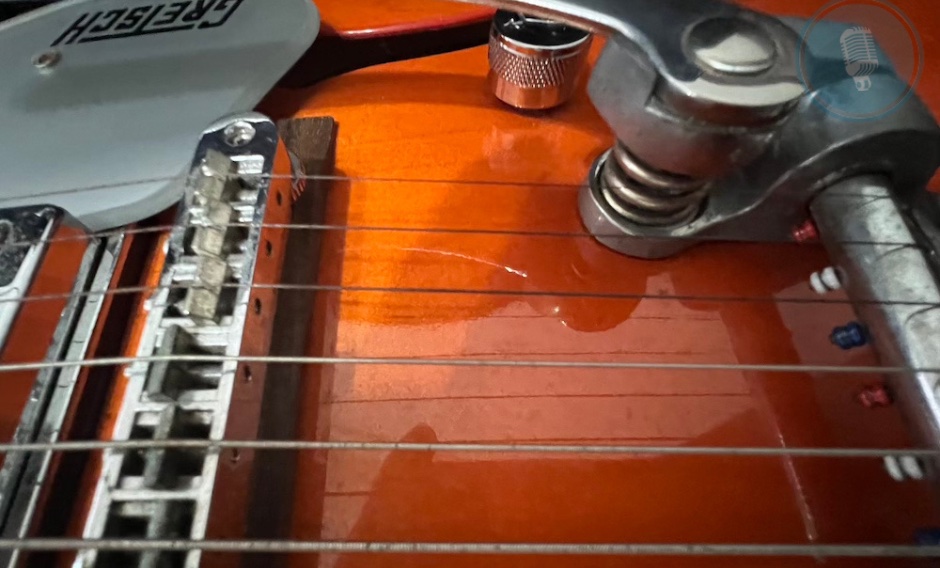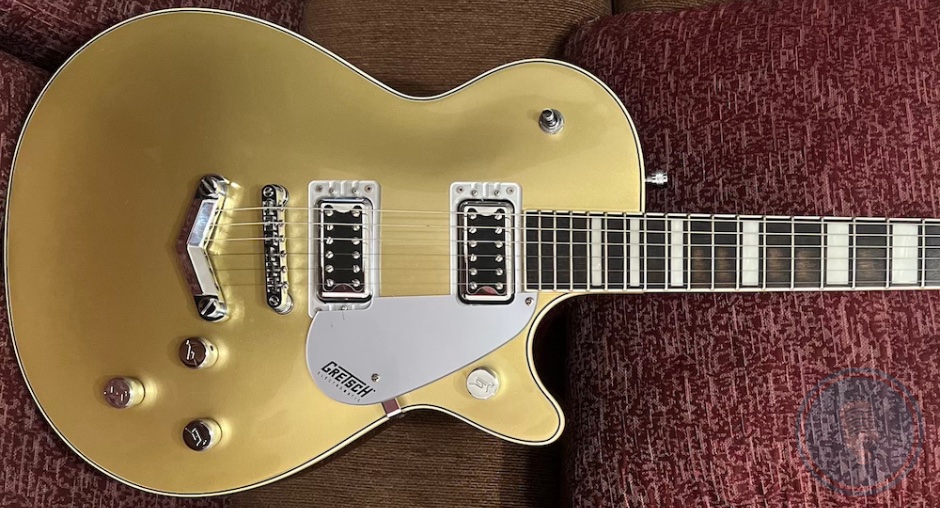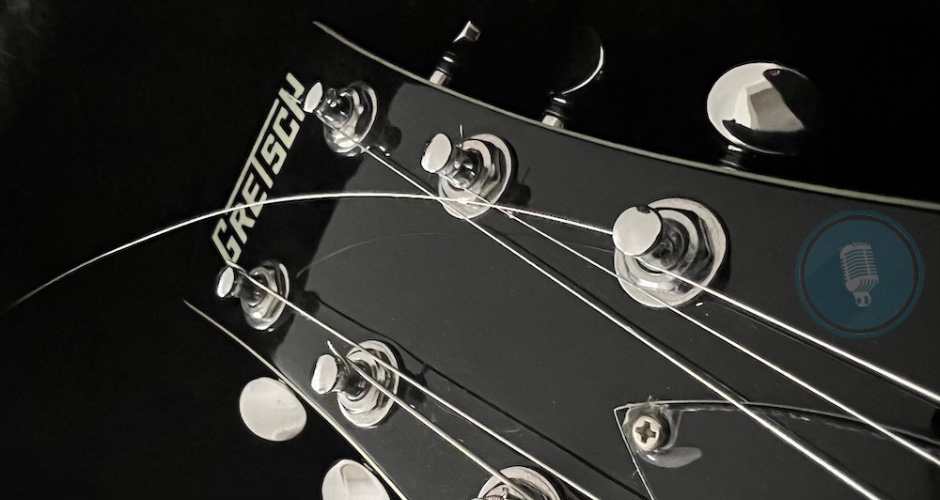How Often Should You Change Guitar Strings?

Experienced guitarists know when to change the strings on their guitars. They can tell simply from how the strings sound and feel.
But, if you are new to playing the guitar, you'll need some guidance on string life and string aging. Read on to find out more.
Signs Your Strings Need to Be Changed
Strings can rust over time and, with it, chemical and structural degradation. These degradations dampen string resonance, making the string sound dull and shortening note sustain. The worst case would be string breaks, which can damage your guitar or injure you.
Dull Tone
Fresh strings have a crisp, trebly sound. But with frequent string use, the strings lose their high-frequency response, resulting in a warmer and duller tone.
If your guitar sounds too muffled, it is a sign that you must re-string your guitar ASAP.
Note that some experienced musicians, myself included, prefer the warmer tone of old strings. Some guitarists prefer less treble if there is still good string clarity.
Poor Tuning and Intonation
Aside from dulling the tone, physical corrosion can also disrupt the natural response of a guitar string.
This will negatively impact your guitar's tuning stability and intonation. This is why guitars with older strings are hard to tune and lack tuning stability.
Intonation issues will be more evident as you go up the neck. And string condition will only get worse. If you don't swap out the strings, they will eventually break.

Physical Corrosion
The string changes color as it collects oil, dust, and grime. If left uncleaned, this will lead to early corrosion, and aging. This is why you should clean dirty strings often, to prolong the string life span.
Still, there will be a point where cleaning will only do a little, especially when corrosion has occurred.
Wound strings will show the most discoloration as they age, while the plain strings can develop rust.
At this point, the guitar strings feel rough, and playing is unpleasant and difficult. Tension will also be different, either stiffer or slacker, due to corrosion.
In such cases, you're better off replacing the entire set, especially when rust has covered parts of the strings.
Why You Should Change Guitar Strings
New strings sound clear and bright. If you want your instrument to feel fresh and consistently sound clear then you should change strings regularly.
Fresh strings sound great and have a metallic character you won't find from old strings.
Newly installed steel strings can be annoying to tune. But they will stay in tune more reliably when appropriately stretched and broken in.
Intonation will also be excellent, assuming your guitar is correctly set up. Your notes won't sound flat or sharp as you move up the neck.
If you want your guitar in optimal working condition, you want your strings always fresh. This is why some pros replace their set of strings every gig, so they have multiple backups of the same strings.

String Life Span
Guitar strings age quickly, and most brands of strings will maintain that the lifespan ranges from about 2 to 6 months at most.
Most guitar string manufacturers will argue that you need to replace guitar strings every 3 months or every 100 hours of practice.
How long your strings last depends on the brand and quality of the strings, along with the string type.
Roundwound strings won't break for long, but they will gradually lose their crisp, trebly tone.
Flatwound strings are known to have longer life spans. And since flatwound sets start with a warm tone, treble degradation is less noticeable.
So, How Often Should I Change My Guitar Strings?
Whether you prefer playing acoustic guitars or an electric guitar, you will eventually have to change your strings. And you'll have to change strings regularly if you want to play well and adequately.
There is no hard and fast rule, but pay attention to the apparent signs of rust. Are your strings beginning to feel rough and dirty? If, anytime within 3 months, your strings feel dirty and have the symptoms mentioned above, like dull sound, unstable tuning, and bad intonation, then changing strings is a good idea.
Rusted strings should be replaced as soon as possible, before the rust spreads to your hardware which will be much harder to clean. And don't ever play on rusted strings, you risk wounding your fingers and getting serious infections.
Other important factors include how often you play the strings and how important good tone is for your performances.
For instance, touring guitarists may need to change strings daily or after every 10 hours of use. In contrast, other professionals may change them weekly or bi-weekly.
Enthusiasts generally swap out old guitar strings monthly or after every 90-100 hours of use. In comparison, some opt to swap out their old set every three months or after over 100 hours of use.
Those who practice less often may find that strings can last up to six months or every 200 hours. While collectors with guitars that are rarely played usually change sets every year or so.
What About Coated Strings?
Coated guitar strings are plain strings with an extra layer of protective coating. This protective layer keeps dust, grime, and other corrosive elements from latching onto the strings, resulting in a prolonged life span. It also helps keep the fresh sound of new strings for much longer.
There are coated acoustic strings and coated electric guitar strings that are available. But they are pricier than uncoated strings. Some manufacturers even offer coated nylon strings for classical guitar players.
Despite being more expensive, coated strings are growing in popularity. Some of the most popular ones are Elixir, D'Addario, DR-coated, and Ernie Ball-coated strings.
These types of strings can last for between six to nine months!
Can You Change Your Guitar Strings Yourself?
A new guitarist may find it complex initially, but changing guitar strings is relatively easy once you know how.
Depending on your guitar type, you only need tools like wire cutters, peg winders, and other specialized tools.
Changing the strings of an acoustic guitar and electric guitar is straightforward, while classical guitars may require looping the strings on the bridge.
For more about this topic, please read our article on How to String a Classical Guitar.

How Often Do Professional Guitarists Change Strings?
Waiting until a string breaks is a terrible idea. You don't want your string to break in the middle of a big guitar solo. And you ought to change before string breakage because you'd already be plagued with intonation and tuning issues by then.
So, I recommend replacing the strings before the symptoms become too severe.
Professional guitarists change their strings for every gig if they are on tour to ensure their guitar sounds good.
How To Make Your Strings Last Longer
While there's no stopping the natural corrosion of metal strings, we can delay their aging with proper care and maintenance. Here are some things you can do to extend the life of your string sets.
Wash your hands
Experienced guitar techs recommend basic hygiene, like washing hands. This regimen ensures we are not passing grime and the oils from our food onto strings.
Regular Wiping
Always have a clean cloth to wipe the strings down every time you play. This helps reduce corrosion buildup. And you can ensure that the guitar and strings are always dry.
String Cleaners
Manufacturers and some professionals swear by the effectiveness of using specialized string cleaners. Just spread a string cleaner on a soft cloth and apply it evenly on the strings. Aside from cleaning, they help keep the strings in good condition and protect them from corrosive elements.
Final Thoughts
Playing guitar can be much more rewarding when you know how to keep your strings in their best condition.
Whether you like electric guitars or play an acoustic guitar, and even if you're a beginner guitarist, you must replace worn-out strings.
How often you change your strings will increase or decrease depending on how often you play guitar. It will also depend on your personal preference regarding tone.
Pros change strings weekly; some have their guitar techs change their strings every time they go up on stage. But this can be overkill for the average player.
Most guitar players who actively practice and perform weekly will need to change guitar strings more often, from weekly to monthly.
Others who do not play often can change guitar strings every 6 months, but I recommend sticking to the three-month rule!
If you find this article helpful, then you'll enjoy reading our guide to the Different Types of Guitar Strings.












